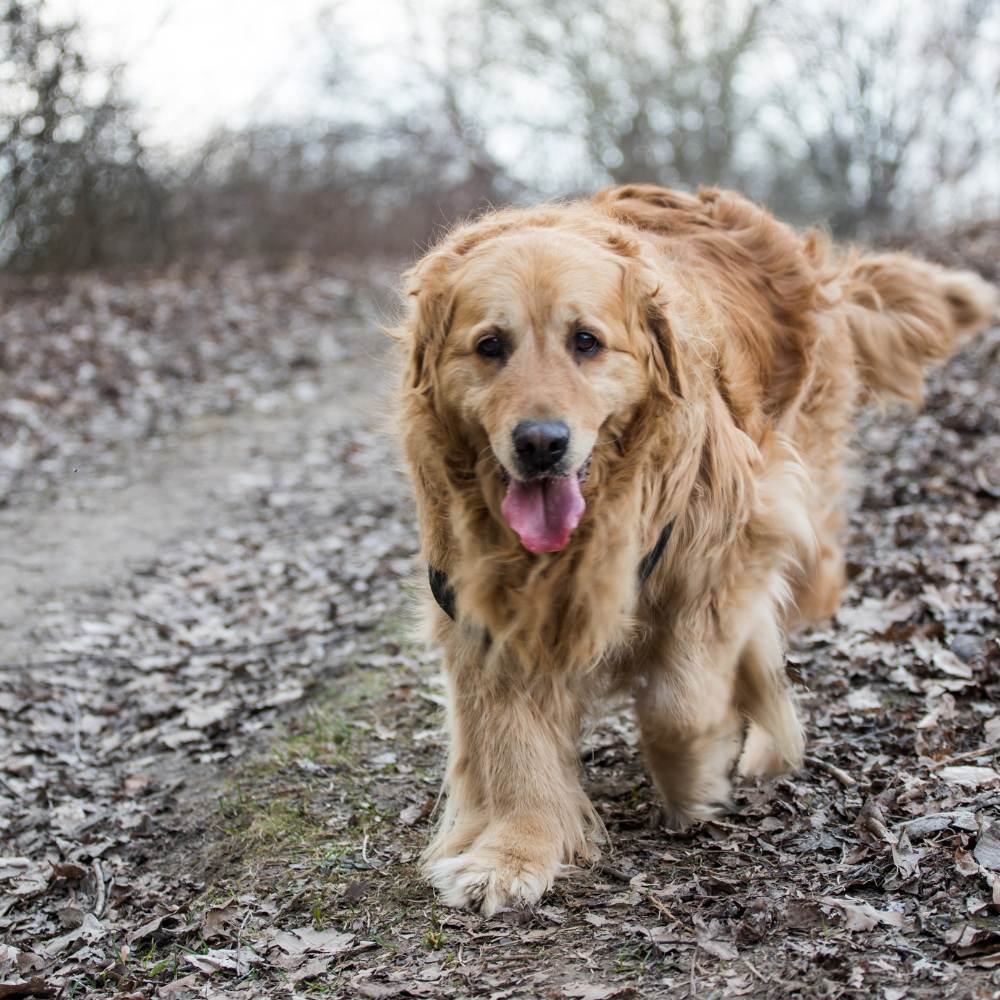In 24 cities

How to Take Care of Your Older Dog During Winter Season
|
|
Time to read 5 min
Get product availability and delivery timelines based on your location.
Are you sure you want to delete this address?
Help us ensure a smooth delivery
Help us ensure a smooth delivery
SIZE GUIDE
|
|
Time to read 5 min
Winter can be particularly challenging for our older furry friends. As our beloved pets age, they face unique health conditions, making tailored care crucial during colder months.
Ensuring the well-being of your ageing dog goes beyond just warmth; it's about enhancing their quality of life.
Ensuring your senior dog's health in cold weather, requires a proactive approach from pet parents.
Understanding these challenges is the first step in providing the necessary support for your senior pet. In this blog, we will explore key insights and expert tips to help you navigate the winter season while prioritising the health and happiness of your older dog.
Older dogs, also known as senior pets, often face health issues related to ageing. In the winter, these challenges become more pronounced.
According to insights from experts in pet care, the cold weather can have a significant impact on their joint health.
As temperatures drop, older dogs may experience increased joint stiffness and arthritis, leading to discomfort and reduced mobility.
The colder temperatures of winter can contribute to joint pain in ageing dogs. This is particularly true for senior dogs already grappling with conditions like arthritis.
To address this, experts recommend a holistic approach to joint care. A balanced diet, including supplements rich in glucosamine and chondroitin, can support joint health and alleviate some of the discomfort associated with colder weather.
As the winter season sets in, understanding effective ways to manage arthritis in senior dogs becomes paramount, ensuring their comfort and well-being during colder months.
Medications: Consult a vet for prescribed medications that can alleviate arthritis symptoms in older dogs during winter. These may include pain relievers and anti-inflammatory drugs to enhance joint comfort.
Therapies: Explore alternative therapies such as physical therapy and acupuncture. These approaches can contribute to reducing joint pain and improving mobility in senior dogs, promoting overall well-being.
Lifestyle Adjustments: Incorporate low-impact exercises into your ageing dog's routine. Gentle walks, swimming, and controlled movements can help maintain joint flexibility without causing additional stress on their bodies.
Ensuring a winter-friendly home for your senior dog is essential to their well-being during the colder months.
By implementing thoughtful measures, you can create a safe and comfortable environment that addresses their specific needs, promoting warmth, security, and overall happiness.
Cozy Retreats: Set up warm and comfortable spots throughout your home where your senior dog can rest. Provide soft bedding in quiet areas, away from drafts, to ensure they have cozy retreats during the colder months.
Safety Measures: Address potential hazards in your home that may pose risks during winter. Ensure pathways are clear of ice and snow to prevent slipping. Consider using rugs or non-slip mats in areas where your dog frequently walks.
By implementing these practical tips, you can effectively manage arthritis in your senior dog during the winter and create a safe and comfortable home environment.
As winter approaches, it's crucial to pay special attention to the dietary needs of your older dog. Senior dogs often require adjustments in their food intake to ensure they stay healthy and comfortable during the colder months.
Consider Senior-Specific Dog Food: Opt for dog food formulated for senior dogs, as it typically contains essential nutrients tailored to their aging bodies. Look for options that support joint health and have a good balance of protein and fats.
Incorporate Supplements: Your vet may suggest supplements to address specific health conditions your older dog may be facing. Common supplements for senior dogs include those promoting joint health, omega-3 fatty acids for coat health, and antioxidants.
When venturing outdoors with your senior dog in winter, taking appropriate precautions is essential to ensure their safety and well-being.
From dressing them in suitable gear to preventing slips, these measures can make outings enjoyable for both you and your furry friend.
Choose Appropriate Winter Gear: Invest in winter gear designed for senior dogs, such as coats or sweaters to keep them warm. Ensure the gear fits comfortably and provides adequate coverage.
Protect Dog Paws: Cold pavement and icy surfaces can be harsh on your senior dog's paws. Use dog-friendly paw balms or consider getting booties to provide protection and prevent discomfort.
Implement Safety Measures: Older dogs may be more susceptible to slips and falls. Be cautious when walking on icy or slippery surfaces and consider using a non-slip harness or leash to provide additional support.
The winter season can be challenging for your senior dog's skin and coat, leading to dryness and potential discomfort. Establishing a regular grooming routine and using appropriate products can help alleviate these issues.
Establish a Grooming Routine: Brush your senior dog's coat regularly to remove dry and dead hair, preventing matting and promoting better air circulation to the skin.
Use Dog-Friendly Winter Grooming Products: Choose grooming products specifically designed for winter use. Moisturizing shampoos and conditioners can help combat dryness, and specialized brushes can be gentle on your senior dog's ageing skin.
Consider Bath Frequency: During winter, avoid frequent baths as they can strip natural oils from your dog's skin. Opt for baths only when necessary and use lukewarm water.
In conclusion, prioritising your older dog's well-being in the winter is crucial. Embrace a proactive approach to senior dog winter care by following the tips outlined here.
Protect your furry friend from the harsh effects of cold weather, considering their health conditions. Stay informed about senior dog health and take preventive measures.
Your older dog deserves extra attention during this season, ensuring comfort and happiness. Make their winter safe and enjoyable with a caring and vigilant approach.
2 item in cart
₹10,360









